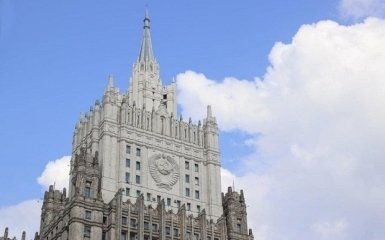In 2024, Russian courts stepped up the use of fines against journalists and readers who interact with media outlets declared "undesirable" by the Russian authorities, in a move aimed at intimidating and stifling independent journalism.
Points of attention
- Intensification of repression against independent media and their readers in Russia in 2024.
- The main goal of the Kremlin's measures is to prevent publications that criticize the government and the official position.
- The Ukrainian conflict is one of the key topics that are censored in Russian media.
- Most independent media in Russia are forced to cease their operations or work abroad.
- The spread of repression in the media sphere is part of the Kremlin regime's strategy to restrict freedom of speech.
Russia has increased pressure on independent media due to fears of regime instability
As British intelligence notes, according to the Russian media organization Mediazon, a significant portion of the fines concern journalists from the Meduza project (based in Latvia), as well as Radio Liberty and the Dozhd TV channel.
Authors, editors, and commentators who participate in creating content that contradicts the official Russian position are subject to sanctions.
British intelligence emphasizes that these measures are aimed at:
Intimidation of independent media.
Refrain from publications that criticize the Russian government or the official version of events, particularly regarding the Russian-Ukrainian conflict.
Discouraging Russian citizens from interacting with independent media.
This activity is part of the Russian government's systematic efforts to restrict freedom of speech and control the media since its full-scale invasion of Ukraine in 2022.
How will the media in Russia work in the future?
Intelligence reports indicate that most independent media outlets in Russia have been forced to close or relocate abroad, while the Russian government is imposing increasingly stringent restrictions on access to foreign sources of information.
Russian authorities are likely to continue to increase pressure on independent media throughout the conflict, reflecting the regime’s growing sensitivity to the potential impact of the war on domestic stability.
More on the topic
- Category
- Politics
- Publication date
- Додати до обраного


